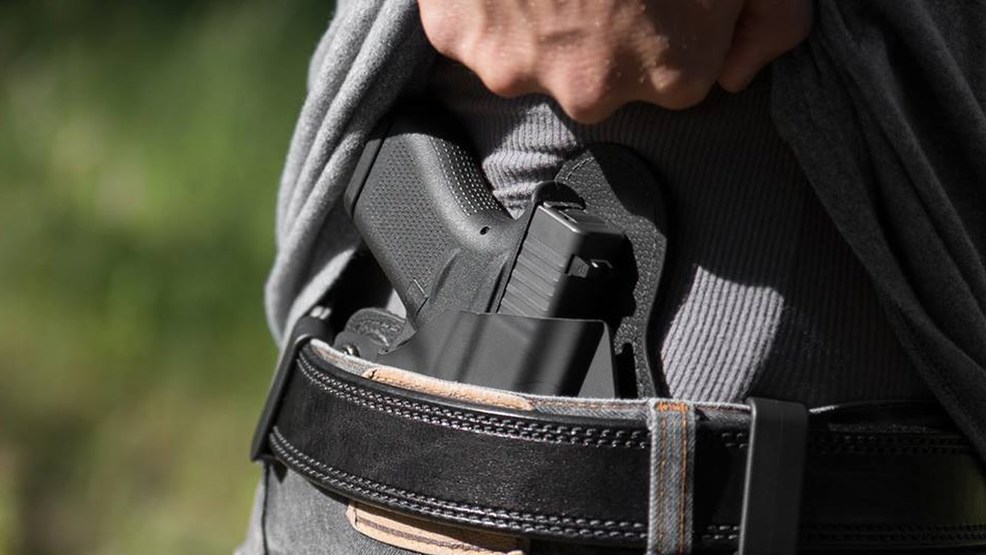Reporting on this case is Gene Hoffman, a founder and the Chairman of The Calguns Foundation, who attended the hearing.
Yesterday, oral arguments were held for our Second Amendment challenge to California handgun “roster” laws (that limit access to Constitutionally-protected handguns by law-abiding people) before United States District Court Judge Kimberly J. Mueller on cross motions for summary judgment. The lawsuit, Ivan Peña et. al v. Stephen Lindley (Wilfredo Cid was previously named as defendant), was filed by The Calguns Foundation, Second Amendment Foundation, and a number of individual plaintiffs in April 2009, during the period that Nordyke v. King incorporated the Second Amendment through the Fourteenth Amendment’s Due Process Clause.
Arguing for Peña et. al, CGF, and SAF at the hearing was attorney Alan Gura with assistance from Don Kilmer. California Department of Justice attorney Anthony Hakl argued for defendant Stephen Lindley, Firearms Bureau Chief for the DOJ.
At the outset, the Court stated that it hoped to hold the proceedings to an hour duration and that she had questions for both sides, so the format was a bit different than many summary judgement arguments.
The Court spent the first 20% of the oral arguments on whether the parties had standing — even though California DOJ had not argued that in their briefings. As a threshold matter, Federal courts do have an independent need to be certain of their standing, but now that Heller and McDonald are the law of the land, individuals and organizations generally have standing.
Counsel for Peña pointed the court to Carey v. Populations Services, a United States Supreme Court that held individuals had a right to challenge regulations on sellers that limited the market in contraceptives from which individuals could buy. The Court was also made aware of NRA v. BATFE, where the 5th Circuit Court of Appeals clearly said that 18-20 year old individuals had standing to challenge a government ban on handgun purchases by them at firearms dealers (while still ruling against those individuals as a constitutional matter; that case is awaiting a cert decision at SCOTUS).
The Court continued to ask if there was any risk of prosecution of the individual plaintiff; Mr. Kilmer pointed out to the court that, in fact, there is. In the Eastern District of California, a Calgunner stands indicted by the United States for conspiracy to straw purchase an off-roster handgun in US v. McGowan. However, we expect that the Supreme Court will clarify Federal law on straw purchases in the already-granted Abramski case by issuing a decision in favor of the accused.
The Court moved on to ask both sides to assume that intermediate scrutiny applied and explore the constitutional violation. Counsel for Peña reminded the Court that the test need not be scrutiny-based since it was not in D.C. v. Heller. The Court continued to explore scrutiny with both sides and was particularly interested in California’s microstamping requirement — she wanted to know if the violation was only temporary. Of course, even a temporary violation of a fundamental right remains nothing less than a violation of the Constitution. In testing California’s theory, California argued that even under intermediate scrutiny, the State could give everyone a handgun and mandate it is the only gun you could use for self-defense in the home….and that would be enough. The Court seemed troubled by the logical extension of California’s argument that only one handgun was enough to allow the full and unencumbered exercise of Second Amendment rights. Peña counsel made it clear that the Constitutional analysis the State wanted to implement would logically allow them to restrict all handguns by caliber to only .22lr, or even to ban all handguns and only allow Tasers — an argument the District of Columbia made and lost on in Heller.
The Court returned to the matter of standing by asking if there was a standing difference for Peña’s facial versus as-applied challenge. Counsel for Peña reiterated the issues from NRA v. BATFE, that standing is utterly divorced from the analysis of a constitutional violation and that not being able to buy the guns they want to buy meets the 3 prongs of standing requirements.
The Court probed to see if there were other facts and even speculated about denying both MSJs — though that seemed to be a bit off-the-cuff.
In lingering a bit beyond the one-hour mark, it was clear that the court had a full picture of the briefing and the record as well as a clear understanding of the issues and gravity of the case.
We expect we’ll see an opinion on the cross motions in the next 90 to 180 days.
Please DONATE TODAY and fund this and other pro-gun Second Amendment lawsuits.
<!–
<br />#mc_embed_signup{background:#fff; clear:left; font:14px Helvetica,Arial,sans-serif; }
<br />/* Add your own MailChimp form style overrides in your site stylesheet or in this style block.
<br />We recommend moving this block and the preceding CSS link to the HEAD of your HTML file. */
<br />–>




